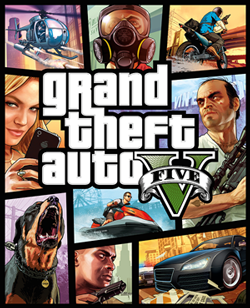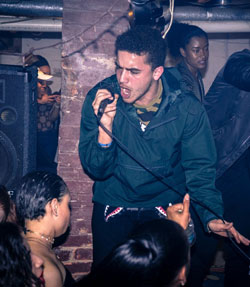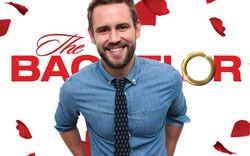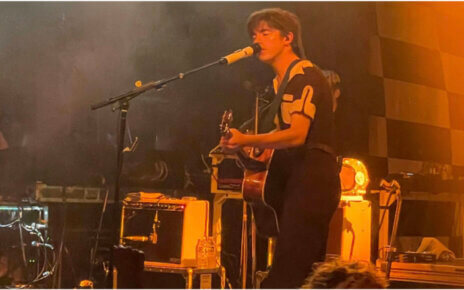One of the main reasons many people in the gaming community have heard about ‘Gamergate’ (something that is neither representative of gamers, nor comparable to Watergate in any real way) is because Anita Sarkeesian, a self-described “feminist media-critic/blogger” has seized upon the conflict (if one can even call it that) to draw attention to her own personal agenda. Sarkeesian believes that the portrayal of women in video games is sexist, and has used the issue of ‘Gamergate’ to help her criticism gain traction. According to MSNBC’s The Reid Report, ‘Gamergate’ is “an online battle of the sexes over how gamers are portrayed, and the sometimes violent reaction to women who speak out.” As far as I can see, this is what some in the media would like it to be, but not what it is. This entire controversy feels manufactured.
That’s not to say that there isn’t a controversy right now. There is, but it wasn’t built off of sexism in video games (there was a domestic spat in the life of a game developer which received media attention, and it has since devolved into ‘Gamergate’). There has, unfortunately, been much toxicity towards Sarkeesian, even death threats. When she was scheduled to speak at Utah State University, someone threatened to carry out a school shooting were she allowed to speak. Honestly, I feel there’s very little to say on this area, as most reasonable people would agree that offensive language and death threats are bad.
I have an issue with Sarkeesian and others who are framing this controversy as being representative of gaming (and gamers) as a whole. First of all, the sexist portrayal of women is not constrained to video games. Some of you have probably seen a story about ‘Gamergate’ on the news. If you stick around until the commercials, you’ll likely see sexist portrayals of both men and women just as bad as what’s featured in games (and it’s much more difficult to argue that there’s a narrative basis in an ad).
Grand Theft Auto V was cited by Sarkeesian as one of the franchises portraying women in a sexist light, and she’s absolutely right. However, she neglects to mention that the game itself is a satire, and as such is meant to show humanity at its worst. Throughout the Grand Theft Auto series as a whole, players will see and partake in such deviant behaviors as theft, murder, arson, torture, rape, and cannibalism. In some cases players are meant to enjoy the deviant behavior, and in others they are meant to be disturbed by it.
Many of the worst aspects of Grand Theft Auto can be seen in The Sopranos, The Walking Dead and Game of Thrones to name a few examples. I’m not saying that what Grand Theft Auto does is right—I’m conflicted about this particular series myself. My goal is to fully inform the public of the flaws in Sarkeesian’s reasoning behind the sexist portrayal of women in video games.
Sarkeesian and several other feminists claim that the portrayal of women in video games negatively impacts society by influencing perceptions and the behavior of gamers. If gamers are taking cues from games like Grand Theft Auto about women, these people have problems of their own distinct from that of the series.
While we’re on the topic of sexist portrayal of women in games, what about that of men? If Sarkeesian is right and games victimize women, then what about the men portrayed in games that carry out said victimization? Wouldn’t that mean that games also demonize men by suggesting that participating in abusive, degenerate behavior is precisely what men generally desire? Most men I know don’t behave this way, nor do they aspire to.
Also, some journalists who take the “holier than thou” stance towards video games can be guilty of the same crime themselves. For example, as I watched Sarkeesian interviewed on The Colbert Report webpage, I saw an advertisement for Slednecks (showing a female on a snowboard, wearing nothing but a snowcap and goggles). As The Colbert Report satirizes games for a sexist portrayal of women, there’s a naked woman on their website enticing people to click on an ad for a new MTV show.
My issue with Sarkeesian and like-minded feminists isn’t with their overall point that there needs to be a more mature portrayal of females in video games; on the contrary I agree with it, strongly. However, I feel that many are guilty of overgeneralizing about the portrayal of women in video games to suit their own positions.
My final point is, if you cherry-pick specific scenes from select video games, it’s very easy to make even the most progressive game appear sexist. For example, Sarkeesian criticized the Dragon Age series for its portrayal of women more than once. I found this especially odd. I’ve played through both Dragon Age games, and consider them to be the most progressive games I have had the pleasure to play.
Sarkeesian claims that the games overuse the “damsel in distress” trope by having male heroes rescue disempowered females. This demonstrates Sarkeesian’s overreliance on searching for self-fulfilling examples. Rather than viewing a game as a whole and coming to a decision based on all the evidence, she takes small, tiny pieces of evidence from select games and uses them to condemn an entire industry. Yes, in Dragon Age Origins one can save a woman as a man. However, if one decides to play as a woman, they can save a woman as a woman. Actually, throughout the course of Dragon Age, you save a lot of disempowered men, too (like releasing a noble who was unjustly imprisoned and tortured). In the very same game Sarkeesian publicly identifies as an example of gender misrepresentation, if one chooses to play as a woman, often the player will save men as a woman. This is exactly what Sarkeesian claims to want from games—equal treatment—and here she is criticizing one that provides it.
This topic reminds me of a scene teased from the upcoming Dragon Age Inquisition. The main character (who one can choose to be male or female) is rescuing an imprisoned character named Leliana. He (or she) makes it to Leliana’s cell, only to see her snap her jailer’s neck, while chained, with her legs. Try as I might, I’m having trouble seeing Dragon Age overusing the “damsel in distress” trope (although I would agree that it is generally overused by the media as a whole, not just video games).
Another criticism of Dragon Age Origins by Sarkeesian was its inclusion of prostitution. Yes, you can pay to have sex with a female prostitute as a man (which doesn’t appear to be out of place in a mature fantasy title, set in a world comparable to Westeros from Game of Thrones). Actually, in the sequel, you can pay to have sex with a male prostitute as a man, or a female as a woman (gender is no longer a restriction for debauchery… be careful what you wish for).
Another thing that makes this article so difficult to write is that I agree with Sarkeesian: like most other media outlets, there is much room for improvement in regards to the portrayal of women in video games. However, as one who plays a lot of games, I fervently believe that things are a lot better than Sarkeesian makes them out to be. Her arguments would be taken more seriously if she framed them more accurately and fairly.
IMAGE TAKEN from en.wikipedia.org




